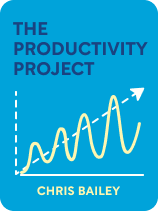

This article is an excerpt from the Shortform book guide to "The Productivity Project" by Chris Bailey. Shortform has the world's best summaries and analyses of books you should be reading.
Like this article? Sign up for a free trial here.
Do you want to improve your time management skills? How can you maximize your productivity per unit of time?
Time management isn’t just about prioritizing what’s most important, but also about minimizing what isn’t important. Therefore, the key to effectively managing your time is knowing which tasks to minimize (or even eliminate altogether).
Here’s how you can supercharge your productivity and time management game by eliminating tasks from your to-do list.
Minimize or Eliminate What Is Unimportant
For every significant task you have, you probably have at least 20 other insignificant tasks. Insignificant tasks might include anything from checking email to scrolling your company’s social media to attending unnecessarily long meetings. These low-impact, but often still necessary, tasks are a part of almost everybody’s professional and personal life and have the potential to take up large amounts of valuable time.
| Reduce the Frequency of Unproductive Emails Email is a commonly cited insignificant task that, despite being a necessary part of our lives, is an undeniable time suck. In Deep Work, Newport offers several suggestions on how to reduce the frequency of unproductive emails. First, he recommends creating a policy on how you’ll handle incoming email, including which emails you’ll reject. Next, to avoid the ongoing email chain, he suggests replying to an email with all the relevant information, including the goal of the conversation, the current status, and relevant next steps. Finally, Newport argues that you shouldn’t waste time replying to thoughtless emails or to emails where no response is required. Newport feels so strongly about reducing unproductive emails that he wrote a book about it. In A World Without Email, he proposes three solutions to the email problem: Change workflows, change methods of communication, and change the nature of employees’ work. |
In order to improve your productivity and time management, according to Bailey, every insignificant task can (and should) be removed, outsourced, or consolidated whenever possible. Your time is finite, so the more time you spend on insignificant tasks, the less time you have to spend on the important tasks that will have the biggest impact on your work.
(Shortform note: Bailey’s recommendations assume that you’re in full control of your time and your work responsibilities, but sometimes insignificant tasks are assigned to you by other people. To limit the amount of time you spend on insignificant tasks assigned to you, Newport suggests having a conversation with your boss in which you set a budget for what Newport calls “shallow work.” Start by talking about your high-level goals and discussing how to restructure your schedule to allow you more time to focus on significant tasks, or “deep work.” Newport argues that once people know you’re being intentional about focusing on significant work, they’ll adjust their expectations accordingly.)
The first step when removing insignificant tasks from your to-do list is to say no. According to Bailey, if something isn’t important, necessary, or meaningful, then you shouldn’t be spending your time doing it. Say no to new requests or opportunities that don’t meet these criteria. To determine whether a task is insignificant, Bailey recommends using the 90% Rule introduced by Greg McKeown in Essentialism. McKeown suggests that every task or opportunity can be rated on a scale of 1-100 based on how valuable or meaningful it is. Anything below a 90, he argues, is unessential and there should be eliminated.
| How to Say No Gracefully In Essentialism, Greg McKeown acknowledges that saying no can be hard. People are often afraid that by saying no they’ll cause conflict, disappoint someone, or miss a valuable opportunity. If you’re uncomfortable saying no, he recommends remembering that saying no to something non-essential is actually saying yes to something more important. He also says to remind yourself that rejecting someone’s request isn’t the same as rejecting them, so be clear on the distinction. McKeown offers several variations on how you can say no gracefully. – Try using a gentle rejection (the “No, but…” strategy). For example, “I can’t take this on right now, but let’s talk again next month. – ”Say no, but offer what you can do instead. For example, “I can’t drive you to the airport, but I can lend you my car.” – Suggest someone else instead. If you aren’t able to take on a task, maybe you know someone else who would be interested. Throw their name out for the opportunity. |
If a task can’t be eliminated, the next step is to consider whether it could be outsourced. To determine whether a task should be outsourced, Bailey recommends asking yourself how much an hour of your time is worth. If it’s worth more than what it would cost to pay someone to do the task, then that task should be delegated. For example, let’s say you value your time at $25/hour. Getting groceries delivered usually costs $10 or less, therefore this would be a logical task to outsource to someone else.
(Shortform note: Many people struggle with how to delegate effectively. First, it’s hard to communicate what you want the end result of a project to look like, and so it often feels easier to just do it yourself. Second, it can be difficult to give up control, especially when you’re responsible for the final outcome. To become a better delegator, make sure you set the person you’re delegating to up for success by describing the desired outcome, providing sufficient details, and providing a clear timeline. Also be prepared to teach. You may not get the result you want on the first try, but that doesn’t mean that delegation is a lost cause. you’ll become better at delegating the more you practice and will gain back a lot of valuable time as a result.)
Finally, if insignificant tasks can’t be removed or outsourced, then consolidate them. There are two ways to consolidate insignificant tasks. First, limit the amount of time you spend on insignificant tasks. For example, set time limits for routine meetings, or make sure email replies are as concise as possible. Second, bundle your insignificant tasks to complete them all at once. For example, respond to all your emails at once instead of periodically throughout the day. Bailey also recommends setting aside a full day when you tackle all the insignificant but necessary tasks in your life from laundry to car registration.
(Shortform note: In The Effective Executive, Peter Drucker recommends consolidating and scheduling your significant tasks, but fitting insignificant tasks into unscheduled time. According to Drucker, setting aside blocks of time for your insignificant tasks will reinforce a mindset of giving priority to what’s unimportant. Instead, he recommends fitting these tasks in when you can, between work on your significant tasks.)
While managing your time allows you to make the most of the limited time you have available, Bailey argues that managing your focus and energy is more impactful because they’re more variable, and you have more control over them.

———End of Preview———
Like what you just read? Read the rest of the world's best book summary and analysis of Chris Bailey's "The Productivity Project" at Shortform.
Here's what you'll find in our full The Productivity Project summary:
- A how-to book for anyone who wants to become more productive
- Why productivity isn't about doing a lot, but doing what matters
- How to hone your focus and monotask better






